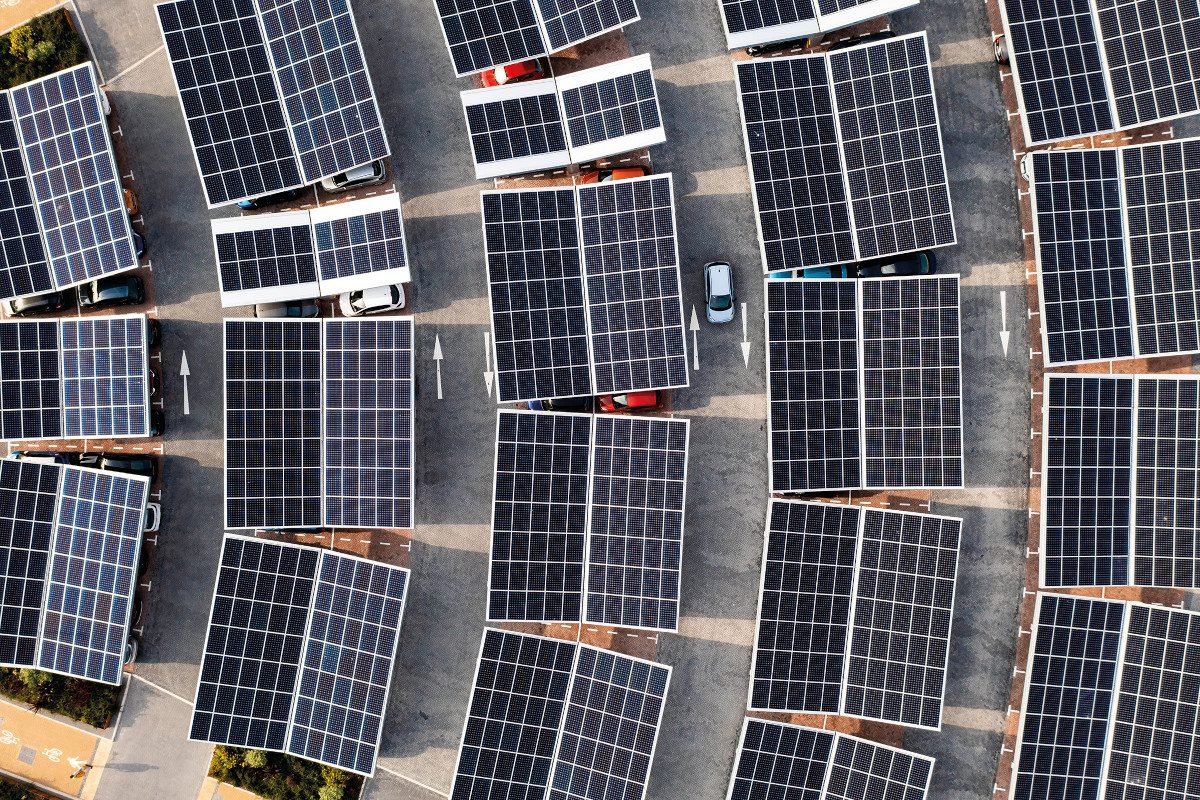
Changes to planning policy could turbocharge the rollout of solar energy and help reduce reliance on gas at little or no cost to the public purse, analysis by CPRE, the countryside charity appears to show. Ahead of the Autumn Statement, CPRE is urging the government to target rooftops, car parks and brownfield sites for a rapid expansion of renewables.
While some solar farms on greenfield land will be necessary to hit the government’s ambitious renewable energy targets by its 2030 deadline, new analysis shows the vast majority of panels could be placed unobtrusively, leading to a much greater chance of strong public support.
Opposition to industrial-sized solar farms in the countryside is growing, meaning the crucial goal of decarbonising the UK’s energy system could get bogged down in planning objections and protests. Demands for food security and nature recovery are needlessly clashing with net zero goals.
In contrast to the UK’s approach, France has announced plans to fast track renewable energy by mandating car parks nation-wide be covered by solar panels – a popular policy that could generate up to 11GW of power, equivalent to 10 nuclear reactors. Meanwhile Germany has focussed on rooftops first, with 80% of its solar power coming from panels that generate little public opposition.
CPRE is calling on the government to adopt a renewables strategy that prioritises rooftops, surface car parks and brownfield sites in a concerted effort to attract wide public support. If implemented quickly, the policy could drastically reduce energy bills during the cost-of-living crisis and speed up the transition to net zero, while leaving as much countryside as possible available for farming and nature restoration.
Analysis by CPRE, using highly conservative estimates, shows that if only a quarter of the UK’s total 250,000ha. of south-facing commercial roof space was useable it could generate 25GW electricity annually. With good planning and design, 20,000ha. of car parking space could potentially yield an additional 8GW of solar capacity alongside tens of thousands of new homes. The UK already has 14.5GW of solar capacity operational.
Tom Fyans, interim chief executive of CPRE, the countryside charity, said:
‘As the Chancellor prepares to fill a black hole in the national budget, caused in part by the astronomical cost of gas, it has never been more important to accelerate the switch to renewables. Simple tweaks to planning policy could have a transformative impact.
‘Commercial roofs and car parks are low hanging fruit ripe for solar installations. There would be little to no objections from the public, meaning no time and money lost to planning delays. It’s a no-brainer to maximise the amount of solar that can be installed out of the line of sight and frankly it’s baffling this hasn’t been done already.
‘Rooftop renewables are the answer. They would be almost universally supported and would help make communities more resilient to both the climate and cost of living crises.’
An increasing number of schemes proposed for otherwise unspoilt countryside, without the backing of local communities, are being refused planning permission. The latest example saw a massive 110-acre solar farm at Sedgeford, in Norfolk, turned down after councillors said it would mean an unacceptable loss of agricultural land and that the panels could go on roofs instead.
It is evident that a combination of rooftops, surface car parks, brownfield sites and small-scale community energy schemes could make a huge contribution to our onshore renewable energy requirements, especially when coupled with better measures to reduce total energy demand that are currently missing from the government’s approach.
Three urgent policy changes are needed to ensure renewables are done well:
- A national land use strategy to balance the competing demands for development, energy and infrastructure, food security and nature recovery; and planning policy amended so that it actively promotes solar panels on suitable brownfield land, avoiding best and most versatile agricultural land.
- Solar panels should be a standard expectation for all suitably-orientated roofs on new buildings, including homes; and planning permission should not be granted for commercial or public car parking spaces unless they also provide solar energy generation.
- The government needs to give more financial support to community energy so that new brownfield solar schemes can be connected to the grid quickly.







